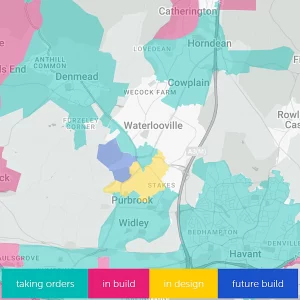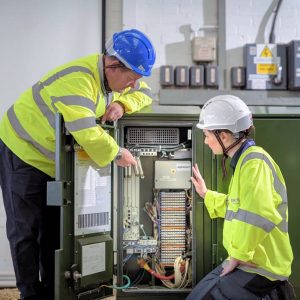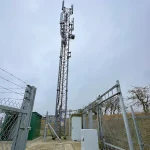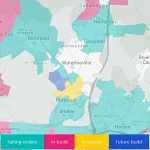Sponsored Links
EU Claims Our Children Will Pay the Price for Failing Broadband Investment
Posted: 03rd Oct, 2011 By: MarkJ
 The European Commission (EC) has today launched two new public consultations to help ensure that national regulators and dominant (incumbent) telecoms operators, such as BT in the UK, deliver non-discriminatory access for alternative operators to their infrastructure (i.e. underground cable ducts and telegraph poles) and at the right price.
The European Commission (EC) has today launched two new public consultations to help ensure that national regulators and dominant (incumbent) telecoms operators, such as BT in the UK, deliver non-discriminatory access for alternative operators to their infrastructure (i.e. underground cable ducts and telegraph poles) and at the right price.The move is part of Europe's wider Digital Agenda, which seeks to bring basic broadband to 100% of Europeans by 2013 and superfast 30Mbps+ services by 2020 (with 50% or more using a 100Mbps product). Unfortunately progress on this front, particularly in relation to infrastructure access, has been slower than hoped.
Neelie Kroes, VP of the EC's Digital Agenda, said:
"We need regulatory consistency in all Member States to ensure a level playing field for telecoms across the whole EU, in which competition and investment can thrive. This will reassure markets that putting money into fibre networks is a safe and profitable investment."
"We need regulatory consistency in all Member States to ensure a level playing field for telecoms across the whole EU, in which competition and investment can thrive. This will reassure markets that putting money into fibre networks is a safe and profitable investment."
Earlier today Kroes also warned the ETNO Financial Times 2011 CEO SUMMIT that "our children and grandchildren will pay the price" if member states fail to invest in the next generation of superfast broadband internet services. She also announced that €9.2bn had been set aside to expand Europe's broadband investment.
Kroes suggested that one of the emerging problems was the wide variety of different approaches to regulation and prices. For example, she noted a considerable divergence of prices across Europe, with wholesale access to the local loop ( LLU ) costing ISPs £4.5 (5.21 EUROs) a month in Lithuania versus £10.7 (12.41 EUROs) in Ireland. LLU is what allows ISPs like TalkTalk and O2 to install and manage their own kit, often at lower cost, inside BT's telephone exchanges.
The European Commission does not believe that differences like this "can be explained solely by variations in underlying costs". Incumbents argue that much lower copper access prices could erode retail prices and thus "make it difficult to charge the higher prices for competing fibre products", which would be needed to cover the investment costs and risks. Kroes sees "some truth" in that argument and hopes to find the answers through its new consultations.
Neelie Kroes, VP of the EC's Digital Agenda, said in her speech:
"Over just ten years, if we get it right, broadband development could give Europe over one trillion euros in additional economic activity, and create millions of jobs. An increase in broadband penetration of 10 percentage points would increase Europe's annual GDP growth by between 0.9 and 1.5 %.
That's why investing in ICT is investing in a competitive future: the Europe of tomorrow is digital. Or to put it another way – can we imagine a prosperous, confident Europe in 2020 that is not digital?"
"Over just ten years, if we get it right, broadband development could give Europe over one trillion euros in additional economic activity, and create millions of jobs. An increase in broadband penetration of 10 percentage points would increase Europe's annual GDP growth by between 0.9 and 1.5 %.
That's why investing in ICT is investing in a competitive future: the Europe of tomorrow is digital. Or to put it another way – can we imagine a prosperous, confident Europe in 2020 that is not digital?"
Both consultations are open to telecoms operators, consumer organisations, national regulators, Member States and other interested parties until 28th November 2011. However, under revised EU telecom rules that came into force on 25th May 2011, the EC would need another couple of years before any new rules could be enforced.
The situation could represent an extra headache and potential delay for Ofcom, which might soon have to intervene in a related dispute between BT and its rivals (e.g. Virgin Media) over the pricing of a Physical Infrastructure Access (PIA) product. PIA allows rivals to run their own fibre optic lines through BT's existing underground cable ducts and overhead telegraph poles but BT's competitors' say it's too expensive.
Search ISP News
Search ISP Listings
Search ISP Reviews
Latest UK ISP News








Cheap BIG ISPs for 100Mbps+
150,000+ Customers | View More ISPs
Cheapest ISPs for 100Mbps+
Modest Availability | View More ISPs
Latest UK ISP News
Helpful ISP Guides and Tips
Sponsored Links
The Top 15 Category Tags
- FTTP (6798)
- BT (3881)
- Politics (3074)
- Business (2766)
- Openreach (2663)
- Building Digital UK (2512)
- Mobile Broadband (2475)
- FTTC (2142)
- Statistics (2127)
- 4G (2092)
- Virgin Media (2024)
- Ofcom Regulation (1779)
- 5G (1732)
- Fibre Optic (1604)
- Wireless Internet (1595)
Sponsored
Copyright © 1999 to Present - ISPreview.co.uk - All Rights Reserved - Terms , Privacy and Cookie Policy , Links , Website Rules































